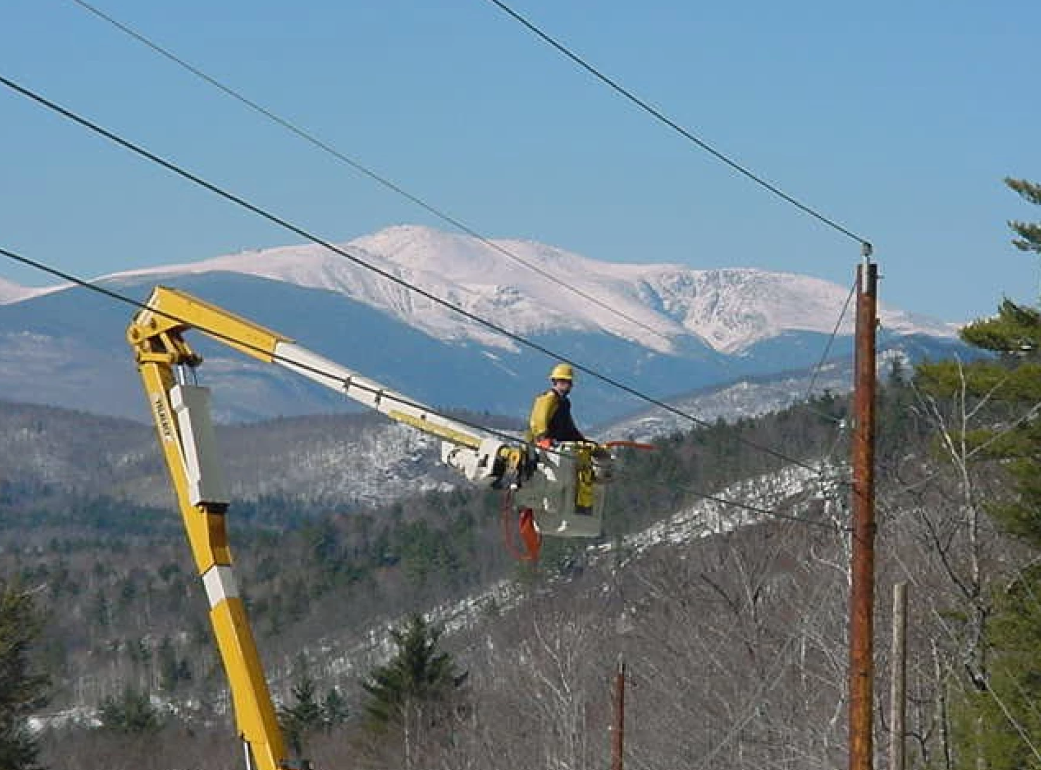
Story Produced by New Hampshire Public Radio, a Member of 
CONCORD, NH – The state’s fiscal committee approved $65 million in federal funding geared toward building out New Hampshire’s internet infrastructure.
Forty million of those dollars will focus on providing internet access to at least 15,000 households in mostly rural communities across the state, which have been historically underserved or unserved by current internet service providers. The rest will go towards a matching grant initiative for providers to build out more internet infrastructure.
The lack of stable internet across the state means New Hampshire is suffering economically, Taylor Caswell, the commissioner of the Department of Business and Economic Affairs, told the committee on Friday.
“I cannot understate the degree to which access to broadband has become a central part of the state’s economy,” Caswell said. “Making these types of investments now will pay off, literally, for decades, and put New Hampshire in a position to compete in an economy that is increasingly accessed over the Internet.”
He added that previous work to get rural parts of the state online has been slow-going.
Many New Hampshire communities are used to slow internet, but the pandemic exacerbated the need for access to high-speed internet, as more people accessed their doctor’s offices, classrooms and workplaces from home.
In a letter addressed to the Fiscal Committee, town representatives and advocates from more than 10 towns in rural parts of the state say the funding is critical to allowing citizens access to those vital services.
Kathleen Kelley, who chairs the Broadband Committee for Randolph and represents the town in the Coos County Broadband Committee, said getting more of Coos — one of the most unserved and underserved counties in the state — is critical to reducing economic, health and educational inequities in New Hampshire.
Kelley noted that towns such as Shelburne and Jefferson indicated that there are as many as 30% percent of homes that only have internet speeds at 25 megabits per second.
“What’s most critical in my mind is access to the internet for our students,” she said. “During the pandemic, many of them had no options to participate in online learning because they had dial up in their home or no internet in their home.”
Many students still struggle to have reliable internet, as do seniors and veterans seeking tele-health care or small businesses needing broadband, Kelley said. She’s hopeful that the new proposal can turn that around.
“It’s the first investment in the North Country that’s actually bringing fiber to the homes,” Kelley said. “It’s just the beginning for the state to bring equity to these rural communities.”
The funds approved on Friday serve as the second round of funding for a $122 million program led by the U.S. Treasury to support capital projects in response to the pandemic. In June, New Hampshire was one of the first states to receive funding for increasing state-wide high-speed internet access that’s at least 100 megabits per second download speed, 100 megabits per second upload speed.
In a letter supporting the latest proposal, Gov. Chris Sununu said it would have similar impacts as a $50 million bid awarded to the New Hampshire Electric Cooperative in October, which would build out broadband to approximately 23,000 locations.
While committee members voted unanimously to pass the proposal, several also expressed hope that the state would finally begin to collect more comprehensive data maps on exactly which towns are unserved and underserved, and how fast broadband is in those locations.
“We’re still looking for maps,” said Rep. Peter Leishman of Peterborough. “We’ve asked repeatedly, how do we stand? Where are the areas that have service or no service?”
Caswell assured lawmakers that this new funding would enable towns and municipalities to make investments toward broadband, including identifying regions and locations that lack internet access.
About $1 million has gone toward mapping efforts led by the University of New Hampshire’s GRANIT mapping team.
 These articles are being shared by partners in The Granite State News Collaborative. For more information visit collaborativenh.org.
These articles are being shared by partners in The Granite State News Collaborative. For more information visit collaborativenh.org.







